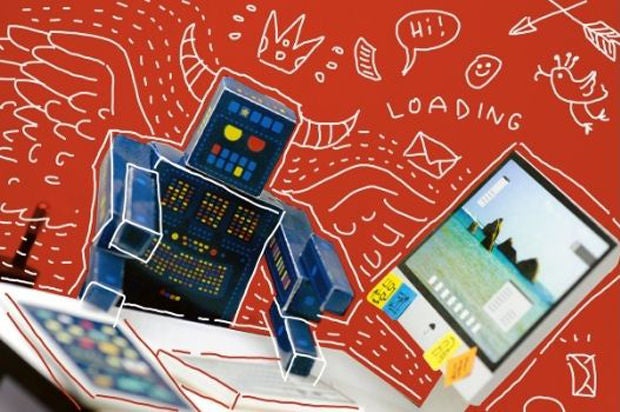
SGH Artificial Intelligence Unit is using digital workers to relieve colleagues who have to juggle their day-to-day jobs and additional responsibilities brought on by the surge in the number of patients and the introduction of new processes due to the COVID-19 pandemic.
Is your mountain of mundane administrative tasks sucking the joy out of you? What if I told you that you can deploy mini bots to do those repetitive tasks for you? Would you use them?
Leow Xu Ying from Strategy Management & Analytics (SMA) did and no longer has to put up with the tedious task of churning out data – repeating the exact same steps every single day – for a COVID-19 dashboard.
“I am no longer a slave to the grind. I used to spend 1 ½ hours every day extracting data from over 20 different Excel sheets across many sources such as Bed Management Unit, Emergency Medicine, Molecular and Diagnostic Bacteriology labs, etc., and then converting them to data to feed to the dashboard. Now with the help of Robotic Process Automation, I don’t have to do this anymore. The bot does it and takes only 30 minutes a day,” says Xu Ying.

Thanks to Robotic Process Automation, Leow Xu Ying from SMA doesn’t have to spend 1 ½ hours every day poring over 20 different excel sheets to extract data for a COVID dashboard.
The COVID-19 dashboard gives SGH leadership an up-to-date snapshot of the COVID-19 situation in the hospital, reflecting critical KPIs, metrics and key data points to help them make decisions to better manage the pandemic operations at SGH.
The Artificial Intelligence Unit (AIA) came to the rescue, with Robotic Process Automation or RPA.
The SMA team had previously heard about RPA so they contacted AIA for help in June. After getting a copy of all the files that SMA used in the process, AIA programmed an RPA bot to perform the exact same tasks required to produce the dashboard. After 4 months of developing and refining the programming, the automation was ready to be rolled out in November 2021.
Invisible mini bots that make light work
RPA is a software that can perform repetitive tasks on a computer such as data entry and generating reports. The AIA Unit started rolling out RPA in SGH Call Centre followed by Pharmacy in early 2021, just a few months before the second wave of the pandemic hit our shores.
The surge in the number of patients and the introduction of new processes brought on by the COVID-19 pandemic have increased workload dramatically. Many wear multiple hats, juggling their day-to-day jobs and additional responsibilities brought on by COVID-19.
“We are relieving our colleagues of administrative burdens by using these digital workers, especially during these difficult times,” says Matthew Han, who leads the AIA unit under the Department of Future Health System.
Let the robot collate the count
Data extraction aside, RPA is also a master at counting and generating reports. In May 2021, healthcare workers had to undergo Rostered Routine Testing (RRT for COVID-19). SGH staff got regular swabs for PCR tests.
Every day, the Swab Ops team at the multi-storey carpark and Academia administered 1,100 swabs, which had to be manually counted and reported twice a day to management.
“I spent 30 minutes every day compiling reports from as many as 18 counters. Half an hour may not sound like much but I had to do this even during my weekends. And this was on top of my regular responsibilities for the Specialist Outpatient Clinics,” exclaims Shawn Poh, Senior Executive.

Now that the RPA bot collates the number of swabs administered, Shawn can do more value-added work.
The AIA Unit saw an opportunity for RPA to help. They worked closely with Shawn and his team to map out the entire reporting process and programmed the RPA bot. AIA completed the project in one month and went live early June this year.
“With RPA, the task is completed at just a click of a button – the bot does all the work while I focus on other tasks,” says Shawn.
“It doesn’t take long to implement RPA either,” explains Chan Wai Ching (AIA), the RPA developer for both automation projects, “although some complicated processes can take about one to two months to programme, a straightforward one like the one from Swab Ops takes only about eight hours to programme.”
“Many colleagues shared how they are feeling burnt out during a recent townhall. Many asked if the hospital could hire more staff to help. And here we have a ready solution, that does not require hiring, to help out with repetitive administrative tasks. Call us and we will work out something with you,” says Matthew.
We love mail! Drop us a note at lighternotes@sgh.com.sg to tell us what you like or didn’t like about this story, and what you would like to see more of in LighterNotes.













 Get it on Google Play
Get it on Google Play